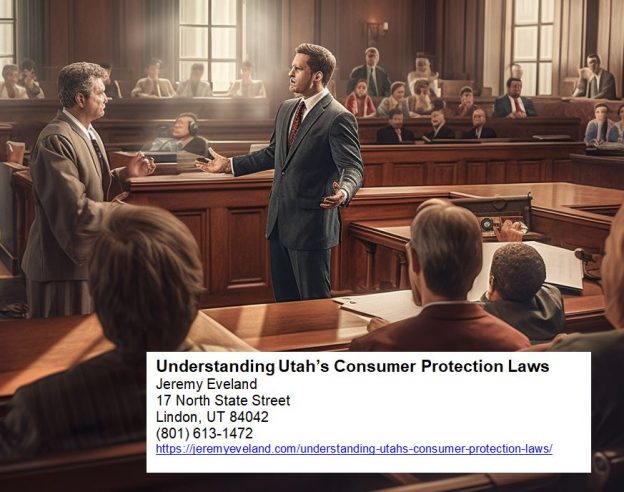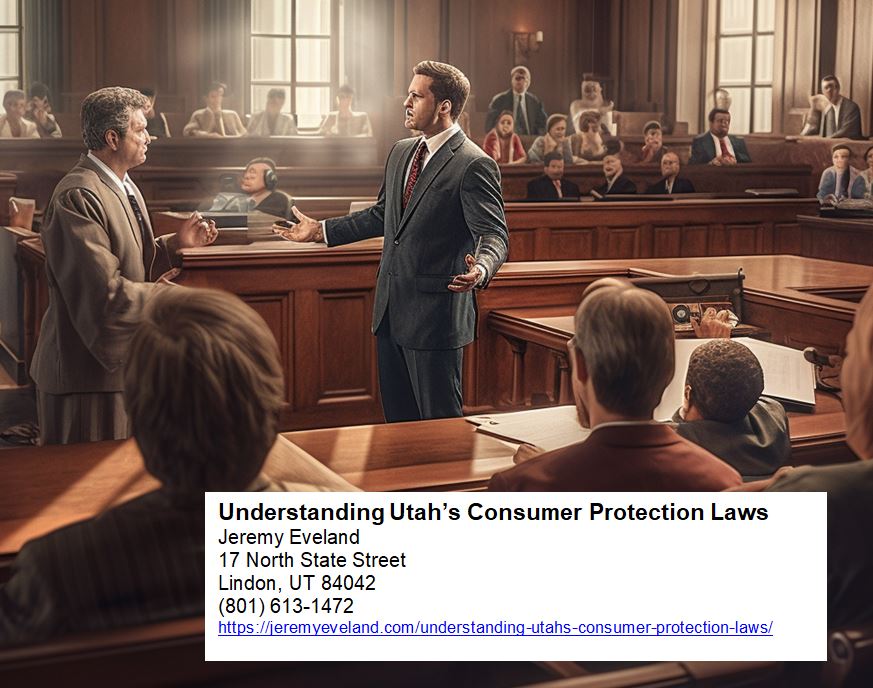Are you a business owner looking to expand your brand through franchising? Franchise agreements are a vital aspect of this growth strategy, as they outline the legal framework in which both parties operate. In this article, we will explore the key legal aspects of franchise agreements and their implications for your expansion plans. From intellectual property protection to financial obligations, understanding these crucial elements is essential for a successful franchising venture. So, if you’re ready to navigate the legal maze of franchising and ensure your growth is on solid legal ground, read on to learn more.
The Basics of Franchise Agreements
Understanding Franchise Agreements
Franchise agreements are legal contracts that establish the relationship between the franchisor and the franchisee. These agreements outline the terms and conditions under which the franchisee can operate a business using the franchisor’s trademark, business model, and support system. It is important for both parties to have a clear understanding of the rights and responsibilities laid out in the agreement before entering into a franchise relationship.
Key Parties Involved
The two key parties involved in a franchise agreement are the franchisor and the franchisee. The franchisor is the entity that owns the established business and grants the right to operate a franchise to the franchisee. The franchisee, on the other hand, is the individual or entity that purchases the rights to operate a franchise from the franchisor. The franchise agreement serves as the legal framework for the relationship between these two parties.
Importance of Franchise Agreements
Franchise agreements are crucial in ensuring a successful and mutually beneficial relationship between franchisors and franchisees. These agreements protect the interests of both parties by clearly defining their respective rights and obligations. They provide a roadmap for how the franchise business should be operated and help maintain consistency across different franchise locations. Franchise agreements also help protect the franchisor’s intellectual property and ensure that the franchisee follows established standards and procedures.
Common Terms and Provisions
Franchise agreements contain various terms and provisions that govern the relationship between the franchisor and the franchisee. These may include the terms of the franchise, such as the duration of the agreement and any renewal options. The agreement may also outline the franchisee’s territory and any exclusivity rights they have. Other provisions may cover franchise fees, royalty fees, advertising and marketing contributions, and the transfer or renewal of the franchise. It is essential for both parties to carefully review these terms and provisions before signing the agreement.
Franchise Agreement Formation
Offer and Acceptance
The formation of a franchise agreement begins with an offer from the franchisor to grant the franchisee the right to operate a franchise. The franchisee then accepts this offer, usually by signing the franchise agreement. Offer and acceptance are critical elements in forming a legally binding contract.
Consideration
Consideration refers to the exchange of something of value between the franchisor and the franchisee. In the context of franchise agreements, the consideration is typically the franchise fee paid by the franchisee in return for the rights and benefits provided by the franchisor. Consideration is an essential element in forming a valid contract.
Mutual Assent
Mutual assent, also known as a meeting of the minds, occurs when both the franchisor and the franchisee agree to the terms and conditions of the franchise agreement. It is important for both parties to thoroughly understand and agree to the terms laid out in the agreement before signing.
Statute of Frauds
The franchise agreement is subject to the statute of frauds, which requires certain contracts, including franchise agreements, to be in writing in order to be enforceable. This means that oral agreements regarding franchises are generally not legally valid. It is crucial to have a written and signed franchise agreement to ensure legal enforceability and protection for both the franchisor and the franchisee.
Franchise Registration and Disclosure
Legal Requirements
Franchise registration and disclosure laws vary from state to state. Some states require franchisors to register with a regulatory agency before offering franchises for sale. These laws aim to ensure that franchisors provide prospective franchisees with all the necessary information to make informed investment decisions.
Franchise Disclosure Document (FDD)
The Franchise Disclosure Document (FDD) is a comprehensive legal document that franchisors are required to provide to prospective franchisees. The FDD contains detailed information about the franchisor, the franchise system, the franchise fees, the financial performance of existing franchisees, and other important information. Prospective franchisees should carefully review the FDD before making any investment decisions.
State-Specific Regulations
In addition to federal regulations, individual states may have their own specific requirements for franchisors operating within their jurisdiction. These regulations may include additional registration or disclosure requirements. Franchisors must ensure compliance with both federal and state laws to avoid legal issues and penalties.
Penalties for Non-Compliance
Failure to comply with franchise registration and disclosure laws can result in severe penalties for franchisors. These penalties may include fines, injunctions, and even the voiding of the franchise agreement. It is essential for franchisors to fully understand and adhere to the applicable laws and regulations to protect their business and maintain legal compliance.
Franchise Territory and Exclusivity
Defining Franchise Territory
franchise territory refers to the geographical area in which a franchisee has the exclusive right to operate their franchise. The franchise agreement should clearly define the boundaries and limitations of the franchise territory to avoid any potential conflicts or disputes.
Exclusive and Non-Exclusive Territories
Franchise territories can be either exclusive or non-exclusive. In an exclusive territory, the franchisee has the sole right to operate a franchise within a specific geographic area. A non-exclusive territory allows the franchisor to grant additional franchises within the same area.
Right of First Refusal
Some franchise agreements may include a right of first refusal provision. This provision gives the franchisee the right to match any offer made by a third party to open a new franchise in their territory. This helps protect the franchisee’s investment and maintain the exclusivity of their territory.
Expanding and Changing Territories
Franchise agreements may also outline the process for expanding or changing territories. These provisions can allow franchisees to request additional territories or relocate their franchise within a certain area. It is important for franchisees to understand the terms and conditions surrounding territory expansion or changes before entering into a franchise agreement.
Franchise Fees and Payment Terms
Initial Franchise Fee
The initial franchise fee is the upfront payment made by the franchisee to the franchisor to obtain the right to operate a franchise. This fee typically covers the costs associated with training, initial support, and the use of the franchisor’s trademarks and business model. The amount of the initial franchise fee varies depending on the franchise system and its perceived value.
Royalty Fees
Royalty fees are ongoing payments made by the franchisee to the franchisor for the continued use of the franchisor’s trademarks and ongoing support. These fees are usually calculated as a percentage of the franchisee’s gross sales. Royalty fees are an essential source of income for the franchisor and help fund ongoing support and development of the franchise system.
Advertising and Marketing Contributions
Franchise agreements often require franchisees to contribute a portion of their revenue to fund national or regional advertising and marketing campaigns. These contributions help promote the franchise system as a whole and increase brand awareness. It is important for franchisees to understand the advertising and marketing obligations outlined in the agreement and budget accordingly.
Renewal and Transfer Fees
Franchise agreements may also include renewal and transfer fees. Renewal fees are paid by the franchisee when they choose to renew their franchise agreement for an additional term. Transfer fees are paid if the franchisee decides to sell or transfer their franchise to a new owner. These fees help cover administrative costs and ensure the franchisor’s involvement in approving potential transfers of ownership.
Protecting Intellectual Property
Trademarks and Branding
Trademarks play a vital role in franchising by distinguishing one franchise from another and helping to build brand recognition and customer loyalty. Franchise agreements establish the franchisor’s ownership of the trademarks and outline the franchisee’s right to use them. Protecting the franchisor’s trademarks is essential to maintain the integrity and reputation of the franchise system.
Licensing Intellectual Property
Franchise agreements grant the franchisee a limited license to use the franchisor’s intellectual property, such as trademarks, logos, and copyrighted materials. These agreements specify the terms and conditions of this license, including any restrictions on the use of the intellectual property. It is important for franchisees to comply with these terms to avoid any claims of intellectual property infringement.
Trademark Infringement
Trademark infringement occurs when one party uses a trademark that is confusingly similar to an existing trademark owned by another party. Franchise agreements typically include provisions that protect the franchisor’s trademarks and outline the consequences for trademark infringement. Franchisees need to understand these provisions and ensure they comply with trademark usage guidelines to avoid legal disputes.
Enforcement and Dispute Resolution
Franchise agreements often include provisions outlining the process for enforcing the agreement and resolving disputes. These provisions may specify the choice of law, jurisdiction, and the methods of dispute resolution, such as mediation, arbitration, or litigation. Understanding these provisions is crucial for both franchisors and franchisees to protect their interests and seek a fair resolution to any conflicts that may arise.
Franchise Operations and Support
Operations Manuals
Franchise operations manuals serve as a guide for franchisees on how to operate the franchise business. These manuals detail the franchisor’s expectations, standard operating procedures, and quality control standards. Franchise agreements typically require franchisees to follow the operations manuals and maintain consistency with other franchise locations.
Training Programs
Franchise agreements often include provisions for initial and ongoing training programs provided by the franchisor. These programs help ensure that franchisees and their employees are properly trained in the franchise system, operations, and brand standards. Training programs are essential in maintaining a consistent and successful franchise operation.
On-Going Support
Franchisors are responsible for providing ongoing support to franchisees throughout the duration of the franchise agreement. This support may include assistance with marketing, operational issues, training, and keeping franchisees up to date with the latest industry trends and best practices. Franchisees should carefully review the level of support provided by the franchisor before entering into a franchise agreement.
Quality Control and Standards
Franchise agreements typically include provisions that establish quality control standards for the franchise system. These standards ensure consistency and maintain the reputation of the franchise brand. Franchisees must adhere to these standards to uphold the franchisor’s brand image and protect the integrity of the franchise system.
Franchise Termination and Renewal
Grounds for Termination
Franchise agreements specify the grounds for termination, outlining the circumstances under which either the franchisor or the franchisee can terminate the agreement. Common grounds for termination include breach of contract, failure to meet performance standards, non-payment of fees, bankruptcy, or expiration of the agreement. Understanding the potential grounds for termination is essential for both parties to protect their interests.
Notice and Cure Periods
Franchise agreements often require either party to provide written notice of their intentions to terminate the agreement. These notices typically include a cure period, allowing the defaulting party an opportunity to rectify any alleged breaches of the agreement. Compliance with the notice and cure provisions is crucial to ensure a fair and legally valid termination.
Franchise Renewal Process
The franchise renewal process outlines the steps and requirements for franchisees to renew their franchise agreement at the end of the initial term. These requirements may include the payment of renewal fees, compliance with performance standards, and the execution of a new agreement. Franchisees should review the renewal process outlined in the franchise agreement and plan accordingly.
Renegotiating Terms
Renegotiating the terms of a franchise agreement may be necessary if either party wishes to make changes to the original agreement. This could involve modifying the duration of the agreement, adjusting territorial boundaries, or revising the fee structure. Renegotiating terms should be done in good faith and with the agreement of both parties to ensure a mutually beneficial outcome.
Resolving Franchise Disputes
Mediation and Arbitration
Franchise agreements often include provisions for alternative dispute resolution methods, such as mediation and arbitration. These methods provide a less adversarial and more cost-effective way to resolve disputes outside of the court system. Mediation involves a neutral third party facilitating negotiations between the franchisor and the franchisee, while arbitration involves a third-party arbitrator making a binding decision. Both methods can offer a quicker resolution to disputes.
Litigation and Court Proceedings
In cases where mediation and arbitration fail to resolve a dispute, litigation may be necessary. Litigation involves filing a lawsuit in a court of law and proceeding through a trial process. Franchise agreements may specify the jurisdiction and venue for any legal proceedings. Legal counsel can provide guidance on the best course of action in specific situations.
Common Franchise Disputes
Franchise disputes can arise from various issues, such as breaches of contract, non-payment of fees, territorial disputes, trademark infringement, or disagreements over operational standards. These disputes can be complex and emotionally charged. It is crucial for both franchisors and franchisees to seek legal counsel when faced with a dispute to protect their interests and work towards a fair resolution.
Role of Legal Counsel
Engaging legal counsel with experience in franchise law is essential for both franchisors and franchisees. An attorney specializing in franchise law can review and negotiate franchise agreements, provide guidance on legal compliance, offer dispute resolution strategies, and protect the client’s interests throughout the franchise relationship. Seeking legal counsel early in the process can help prevent and mitigate legal issues in the future.
Legal Compliance and Risk Management
Complying with Federal and State Laws
Franchise agreements must comply with federal and state laws governing franchising. These laws include franchise registration and disclosure requirements, as well as regulations regarding unfair business practices and consumer protection. Franchisors and franchisees must understand and adhere to these laws to maintain legal compliance and avoid legal issues.
Avoiding Unfair Business Practices
Franchise agreements should adhere to ethical business practices and avoid unfair treatment of franchisees. Some common unfair practices to watch out for include arbitrary changes to fee structures, forcing franchisees to purchase supplies from designated suppliers, or imposing unreasonable operational requirements. Compliance with fair business practices enhances the reputation of the franchisor and promotes a positive franchise relationship.
Franchise Fraud Prevention
Franchise fraud occurs when deceptive or misleading information is provided to prospective franchisees, leading to financial loss. Franchise agreements should include provisions that prohibit fraudulent practices and outline the consequences for fraud. Prospective franchisees should be cautious and conduct thorough due diligence to avoid falling victim to fraudulent schemes.
Insurance and Liability Protection
Franchise agreements may require franchisees to obtain certain types of insurance coverage, such as general liability insurance or workers’ compensation insurance. These insurance policies help protect both the franchisor and the franchisee in the event of accidents, injuries, or other liability issues. It is important for franchisees to understand and fulfill the insurance requirements outlined in the franchise agreement to mitigate risk.
In conclusion, franchise agreements are essential legal documents that establish the relationship between franchisors and franchisees. Understanding the basics of franchise agreements, including the key parties involved, the formation process, registration and disclosure requirements, territory and exclusivity provisions, fee structure, intellectual property protection, operations and support, termination and renewal processes, dispute resolution methods, and legal compliance, is crucial for both franchisors and franchisees. Seeking the guidance of a knowledgeable franchise attorney can help ensure that all legal aspects are properly addressed and that both parties can achieve a successful and mutually beneficial franchise relationship.























